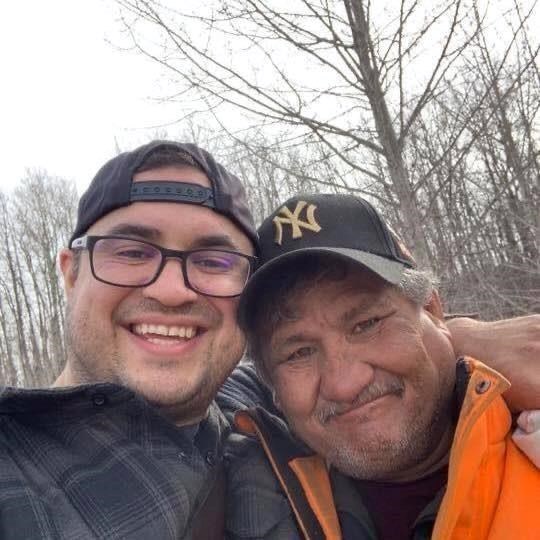EDMONTON — A judge has sentenced an Alberta man who killed two Métis hunters to life in prison with no chance of parole for 13 years.
Anthony Bilodeau was found guilty in May of second-degree murder in the death of Maurice Cardinal and manslaughter in the death of Jacob Sansom.
Sansom, 39, and Cardinal, his 57-year-old uncle, had been moose hunting in March 2020 before they were shot and left on the side of the road near Glendon, Alta., a rural community about 200 kilometres northeast of Edmonton.
At a sentencing hearing Friday, the Crown asked that Bilodeau serve 15 years of the life term before he could apply for parole. The defence recommended the minimum 10 years.
Court of King's Bench Justice Eric Macklin said 13 years was appropriate.Â
"The actions of Anthony Bilodeau on March 27, 2020, had tragic consequences," he said. "Two innocent men were killed."
He said it will ultimately be up to the Parole Board of Canada to determine when Bilodeau is released on the murder conviction. The judge also gave Bilodeau a concurrent sentence of eight years for manslaughter.
Bilodeau's father, Roger Bilodeau, was convicted of manslaughter in the two killings and was earlier sentenced to 10 years in prison.
Lawyers for the two men argued at trial that the shooting was in self-defence.
The Crown had said that the father and son took the law into their own hands when they chased down Sansom and Cardinal because they believed the hunters were attempting to steal from their family farm.
"No amount of justice will ever ease their pain or bring the boys back," family spokesperson Andrea Sandmaier with MĂ©tis Nation Alberta said outside court after the sentencing.
She said every day since the killings has been tough for the family.
The trial heard that on the night of the shooting, Anthony Bilodeau got a call from his father and younger brother, who were chasing a pickup truck they suspected had been on the family's property earlier in the day.
Roger Bilodeau told his older son to meet up with them and to bring a gun for protection.
Anthony Bilodeau testified that his phone was still connected to his father’s Bluetooth speaker when he heard thuds, cracking glass and his brother scream at someone not to kill or hurt his father.
It was alleged that Sansom had smashed the passenger window of Roger Bilodeau's truck with his bare hands, then attacked him and his younger son in the truck.
Anthony Bilodeau told the trial that when he arrived, he shot Sansom because the man charged at him. He also said he heard Sansom call out to Cardinal to get a gun so they could kill him.
Bilodeau said he next shot Cardinal because the man came at him with a large gun. He then shot Cardinal two more times in the back of the shoulder.
The Bilodeaus drove away and the bodies of Sansom and Cardinal were found on the side of the road the next morning by a motorist who reported the deaths to RCMP.
After the shooting, Anthony Bilodeau cut up his gun and threw it in a dump. He testified that he was in shock and didn't want to go to prison for protecting his family.
A toxicology report submitted in the case said the hunters had been drinking. Sansom's blood-alcohol level was nearly three times the legal driving limit, while Cardinal's was nearly twice the limit.
Prosecutors said at trial that the men's intoxication was not relevant. He said the hunters were chased for going near the Bilodeau family property, and that Anthony Bilodeau was told to bring a gun before there was a threat of violence.
"The Bilodeaus were the aggressors," Crown attorney Jordan Kerr said in his sentencing submissions.
Defence lawyer Brian Beresh said Anthony Bilodeau's actions were "reactionary" and that he plans to file an appeal.
"This is one of those cases that's so unique that it's clearly going to go to an appeal," Beresh said Friday outside the courthouse.
"I expect it will go all the way to the Supreme Court."
This report by The Canadian Press was first published Jan. 6, 2023.
___
This story was produced with the financial assistance of the Meta and Canadian Press ߣÄĚÉçÇř Fellowship.
Angela Amato, The Canadian Press


